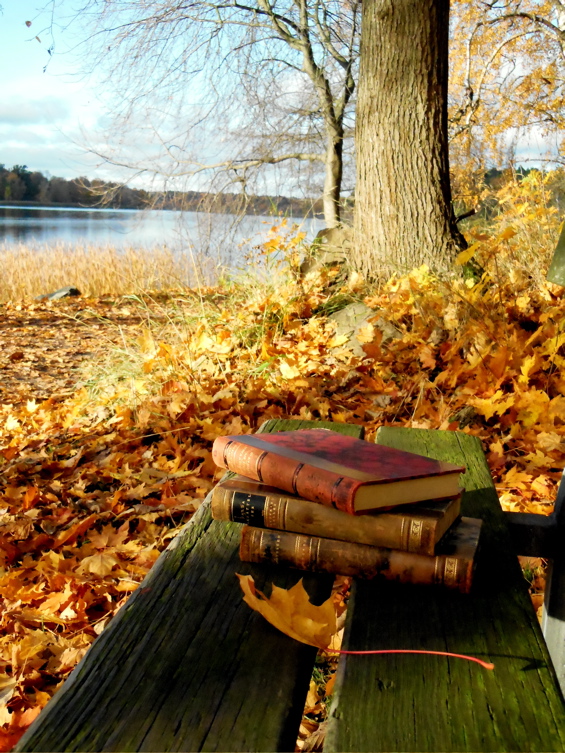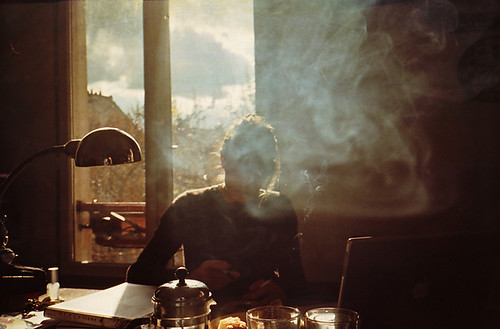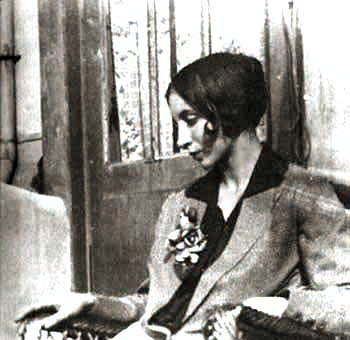
Reading on the shores of the Stockholm archipelago © Erin Zaleski 2012
Fall is almost over, and even back home in the Bay Area the days are short and the fog and rain have settled in. In Stockholm, snow is already blanketing the ground and sunsets at 3 am have become the norm. Bleak, yes. But the last days of autumn are also the perfect time to hunker down with a good book. Here are few I’m currently reading:
 The House in France, by Gully Wells I had lunch with Gully a couple of times back in my post-grad job hunting days and I’ve always enjoyed her pieces in Condé Nast Traveler, so I was excited to check out her first book. Her writing here is equally frank, funny, and elegant, and her memoir provides a poignant snapshot of the exploits of the intellectual beau monde in Provence and London during the ’60s and ’70s. Her tale of getting high with Martin Amis at Oxford (during which an old record player meets an unfortunate demise) had me laughing out loud.
The House in France, by Gully Wells I had lunch with Gully a couple of times back in my post-grad job hunting days and I’ve always enjoyed her pieces in Condé Nast Traveler, so I was excited to check out her first book. Her writing here is equally frank, funny, and elegant, and her memoir provides a poignant snapshot of the exploits of the intellectual beau monde in Provence and London during the ’60s and ’70s. Her tale of getting high with Martin Amis at Oxford (during which an old record player meets an unfortunate demise) had me laughing out loud.
 Embers, by Sándor Márai I have read this intense, little novel about three times already, and there is something about brooding, autumn days that make me want to pick it up again and lose myself once more in Márai’s powerful prose. Although slender in size, the book covers such weighty themes as friendship, lust, betrayal, and revenge, all set against the backdrop of the last days of the Austro-Hungarian Empire.
Embers, by Sándor Márai I have read this intense, little novel about three times already, and there is something about brooding, autumn days that make me want to pick it up again and lose myself once more in Márai’s powerful prose. Although slender in size, the book covers such weighty themes as friendship, lust, betrayal, and revenge, all set against the backdrop of the last days of the Austro-Hungarian Empire.
 The Post-Birthday World, by Lionel Shriver Imagine a world without what-ifs. This book about decisions and consequences does precisely that via parallel story lines. Ensconced in a comfortable, albeit predictable live-in relationship, Irina is tempted to kiss a mutual friend during his birthday dinner. The remainder of the novel presents two divergent narratives based on whether she chooses to yield to passion or to loyalty. A graceful meditation on love, fate, and choice, although I am getting the impression that neither destiny yields happiness.
The Post-Birthday World, by Lionel Shriver Imagine a world without what-ifs. This book about decisions and consequences does precisely that via parallel story lines. Ensconced in a comfortable, albeit predictable live-in relationship, Irina is tempted to kiss a mutual friend during his birthday dinner. The remainder of the novel presents two divergent narratives based on whether she chooses to yield to passion or to loyalty. A graceful meditation on love, fate, and choice, although I am getting the impression that neither destiny yields happiness.


